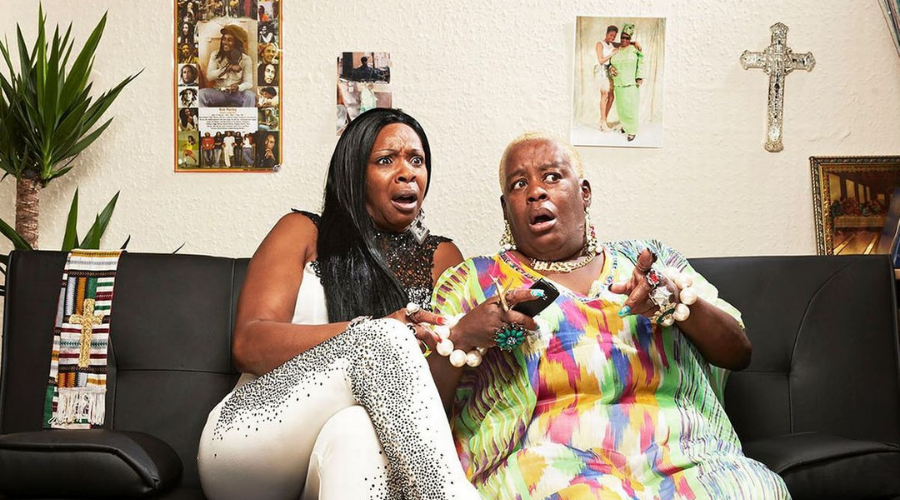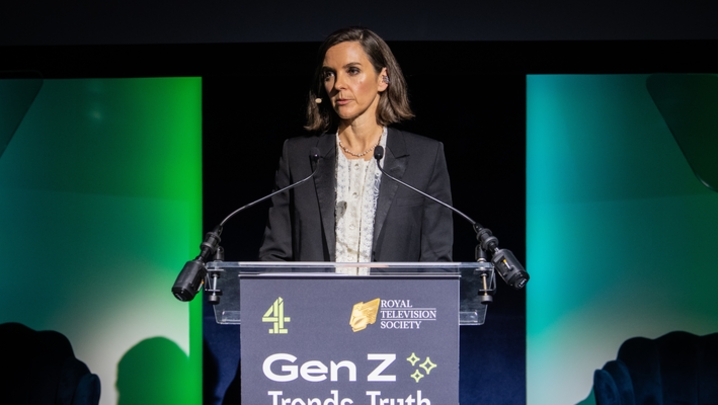Narinder Minhas reviews Maggie Brown’s second instalment of her history of an unfailingly turbulent broadcaster.
You think that policemen/teachers/doctors look incredibly young. You become grumpy when your colleagues don’t know what a VHS tape is. You join a gym after seeing yourself in the mirror as you climb out of the bath. And, God forbid, you buy truckloads of Lycra for your new-found hobby of cycling.
Recognise any of this? Sure, you do, as you fall asleep after one glass of wine, tired from a full day at the garden centre, which now counts as “splashing out”. And if you prefer radio to TV, you are on the slippery slope. Welcome to middle age.
According to some dictionaries, middle age hits you between 40 and 60. But no one quite knows. What is clear is that it is a moment of reflection and transformation.
As Channel 4 approaches its 40th birthday, what better time to look at its history, not just to explore the past, but also to understand the present. I can think of no one better to go on this journey with than one of Britain’s top media writers, Maggie Brown.
Fizzing with insight, revelations and drama, her new book on Channel 4 (The Story from Big Brother to The Great British Bake Off) is a fascinating account of one of the world’s most colourful and distinctive broadcasters: “a commercially funded channel with a public service remit”.
Bookended by the recession of the late noughties and the current crippling pandemic, this volume – a follow-up to her book on the first 25 years of the channel – covers a hugely turbulent period, from the dysfunction of the board under Luke Johnson, via the whirlwind years of Jay Hunt, charting incredible programme innovations, right up to the modern regime of Alex Mahon and Ian Katz, bravely fighting its way to a new digital future.
It could have been a bit dry, like one of those shiny business books on display at the airport that you feel you ought to read, but never quite enjoy. Worse still, it could have been a puff piece. The risks are always there when an institution gives access to a journalist or programme-maker.
Even though the book covers recent history, there is so much I had forgotten – another sign of middle age.
Brown doesn’t shy away from reminding us about the channel’s tricky periods. For example, do you remember the board trying to buy Channel 5, but losing out to Richard Desmond, a successful businessman and former porn baron, who put in a “knock-out cash bid”? Or the ill-fated attempt to move into radio? Or the “begging bowl” strategy, where the channel campaigned to top-slice the BBC licence fee?
Brown is at her very best when she goes granular. She has the eyes and ears of a documentary-maker, capturing the sights and sounds of a scene. I love the chapter on “The rise of fixed rigs”: “The most significant programme development… began with an idea sparked over a plate of chilli mackerel at a Vietnamese restaurant in Shoreditch.”
At the meal with two independent producers was Simon Dickson, a commissioner at Channel 4, described by Brown as a “burly, determined Scot”, who was complaining, between mouthfuls of mackerel, about the dominance of Big Brother at programme review meetings. Dickson fumed that he “couldn’t understand why so many middle-aged people were talking in glowing tones about a programme for young people”.
The discussion over lunch produced one of those eureka moments that development teams dream about. Dickson was on a roll: “The futility of spending all that money on a space, then filling it with vainglorious ne’er-do-wells. Why don’t we take the Big Brother technology and put it somewhere more interesting?”
This was the moment the rig show was born. What followed was a long trail of hugely successful factual shows, “television gold”, as they say, starting with Going Cold Turkey and The Family, and ending with all those incredible blockbusters: Educating Yorkshire, One Born Every Minute and 24 Hours in Police Custody. There was even time for “a rigged series featuring seven dwarfs, a troupe of pantomime actors gearing up for Christmas”.
One of the more revealing chapters in the book highlights the “toxic triangle of Luke Johnson (Chair), Andy Duncan (Chief Executive) and Kevin Lygo (director of programmes) at the top of Channel 4” during 2008, culminating in the departure of Duncan.
According to Brown, the dysfunction was so bad at the time that it split the board: “Johnson wanted to remove Duncan but his deputy, David Puttnam, wanted to stop him… at least for the time being. One certainty was that Duncan, whose weakness was that he always saw the best in people, was in deep trouble.”
What follows is the story of this exit and the power struggle at board level. Brown is in her element, painting an absorbing picture of all the key players. It has the feel of an episode of Succession, the HBO hit that follows the fortunes of a media family, loosely based on the Murdochs.
By the end of this topsy-turvy saga, I was exhausted with all the machinations and feeling sorry for the hapless and “rumpled polo shirt”-clad Duncan. Even the announcement of his departure didn’t go to plan: “The agreement was that [it] would be announced in a dignified manner… well after the Edinburgh International Television Festival. But the sacking was leaked at Edinburgh, where Duncan looked a broken man. After bitter negotiations, he signed a compromise agreement, including a donation from Channel 4 to two of his chosen charities.”
It is clear from the book that everyone in British television spoke to Brown. The access is incredible and nowhere more so than over the battle to appoint the new chief executive.
In the red corner was David Abraham, the outsider and former advertising exec, who even had his own strapline: “I am a unique hybrid, so uniquely qualified”.
In the blue corner was Kevin Lygo, the insider, posh art collector, popular with Channel 4 staff and ultra-confident. But Lygo had underestimated his rival.
On the day of the interview, Abraham was well-prepared: “He had read every speech made by the previous five chief executives [and] he presented each of the panel with a glossy brochure about himself. He was commercial, with just enough television commissioning experience and channel branding success to tick the board’s boxes.”
"We all need a Dan Brooke, especially one that can open some heavy doors."
Abraham also had a secret weapon: his unofficial campaign manager, Dan Brooke, “the son of a former cabinet minister”, who was well-versed in the world of politics and lobbying. By the time of the interview, and on Brooke’s advice, Abraham had met all the key opinion-formers for some cosy “fireside chats”. We all need a Dan Brooke, especially one that can open some heavy doors.
Though Lygo would have been a brilliant boss, in Brown’s view, it was what happened to him in the interview that proved to be decisive: “The killer, according to three members of the panel, was his response to a question about how he would deal with under-performers. [Lygo] said: ‘I would withdraw my love’. A chill descended on that small room.” It was probably a joke, but it backfired.
The book doesn’t just shed light on some of these key appointments, which changed the course of Channel 4’s history, it is also a celebration of an extraordinary brand that has survived against all the odds, produced brilliant content, working with some of the most talented and creative staff around – too many to mention here. We are very lucky in Britain to have Channel 4.
I have not even mentioned the huge array of hits generated during this period: Gogglebox, The End of the F***ing World, Peter Kosminsky’s compelling drama The State, First Dates, Leaving Neverland, the brilliant Channel 4 News, or the whole process of creative renewal in the past 10 years, or even the recent monster hit Russell T Davies’s It’s a Sin.
As Brown says, “It is impossible to capture the entirety of a broadcaster’s activity in a book”. Likewise, it is impossible to capture all the richness of this book in one review. And that is not me being middle-aged.
Narinder Minhas is Co-Managing Director of Cardiff Productions. He worked as a commissioning editor at Channel 4 in the early 2000s.







